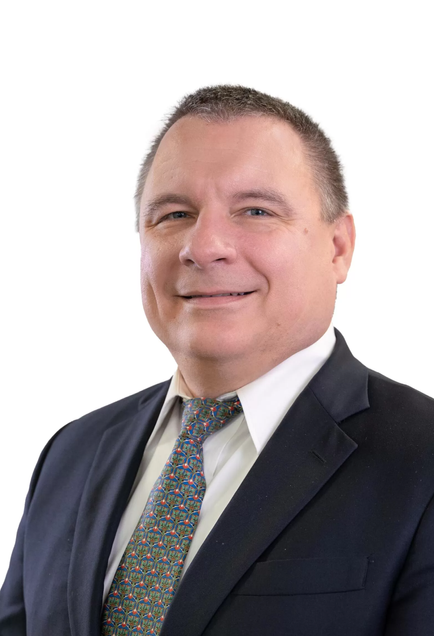Alumni Spotlight: Dr. Andre P. Cap MD PhD

Andre P. Cap, MD/PhD
BUCASM MD/PhD Class of 2003
Colonel, US Army (retired, November 2023)
Subject matter expert advisor to Joint Trauma System (JTS), US Pacific Command & US Special Operations Command (SOCOM)
Consultant: Velico Medical
Volunteer faculty member: Uniform Services University and Brook Army Medical Center
Borkan: How did your career unfold after BUSM?
Cap: My career took turns that I could not have predicted. It began as an M3 on the BMC Heme/Onc wards back in the day. we were giving a [chemotherapy] “martini” for CML…and they were dropping like flies… it was really a profound experience for me. Being 30 years old and wanting to do public service before I was “too old”, I substituted my MD/PhD fellowship for the Army for the last two years, did an Army residency in internal medicine and a hematology/oncology fellowship in Washington D.C. I thought I was going to be a bone marrow transplanter. But the Army asked, “Are we storing blood right and how can we make it more available in the battlefield?”. The DoD moved the Institute of Blood Research to San Antonio, Texas and they said, “You have PhD, why not take over the institute?” I became division director and then director of research for the whole institute right out of my fellowship. It was just pure luck…right place at the right time. I spent the next 15 years at the Army Institute of Surgical Research, mostly building and running the lab, and doing part-time clinical work at Brook Army Medical Center. So, I oversaw a $60 million per year research program and nearly 300 researchers. I did not intend to make it a 22-year career.
Borkan: What were your challenges?
Cap: In the beginning, it was “Whoa”. I was overwhelmed and there was skepticism. “You just finished fellowship, buddy”. I had to just sell my plans for the lab and myself as somebody who could execute those plans. It was wartime [in Iraq]. In the middle of a war, my superiors said, “Well, all right, let’s give this guy a try because what the hell, we’ve got to execute and execute now. So, let’s see what he does”. I had trained in Joe Loscalzo’s lab, the former head of cardiovascular medicine, studying homocysteine and its effects on nitric oxide, bioavailability, and on endothelial function and platelets. Though it wasn’t directly related, he gave his students independence, and it was self-driven research work…good for me to prepare for what lay ahead, even though I didn’t know it at the time.
Borkan: What did you discover at the Institute to help our soldiers?
Cap: In the “old days”, people who were bleeding mostly received refrigerated (cold) whole blood, but people stopped doing that because of the fear that cold platelets wouldn’t work. Well, it turns out they work just fine in whole blood, just like stored platelet concentrate…this observation led to the rebirth of whole blood, which is now all the rage in trauma management across the world. Instead of giving people emergency saline, we now give group O, low anti-A, anti-B titer whole blood as a universal product to improve oxygen delivery and hemostasis. Randomized DoD funded clinical trials show better outcomes with whole blood than components. I “backed into” the field of transfusion medicine from Heme-Onc and my fellowship training in bone marrow transplant.
Borkan: What motivated you to stay in research?
Cap: I did an elective during my PhD at the Brigham in vascular pathology. The medicine teams and surgery teams would present clinical cases in the “bowels of Brigham” where the pathologist showed autopsy specimens and labs like “very old school medicine”! The pathologist ran the meeting and you “touched the disease”, like aortic atherosclerosis…making what we did in the lab very real by handling the body. My PhD was actually in the department of Pathology. More than anything else, this motivated me to stick with research.
Borkan: How did BUSM training help your career?
Cap: I got a tremendous clinical training at BU that prepared me well for all the crazy things I enjoyed being in the army partly because it wasn’t all just lab work. I deployed to Iraq… as chief of medicine of a combat unit at an Iraqi support hospital where I oversaw massive transfusion and really bad coagulopathies upfront in patients. I launched to Germany and worked in the ICU where I took care of many trauma patients. Now I get calls from all over the world about critically ill patients with hematologic problems or requests to help set up research programs. That’s because of the synergy between the research and the clinical interest.
Borkan: What is your advice for our current MD/PhD students wondering how the use their dual degrees?
Cap: If you are open to trying to use both degrees and open to unusual opportunities that that might present, you can have a super interesting career. Accept a fair amount of uncertainty… it’s hard to do both clinical medicine and research but not impossible. We can be the triple threats as a great administrators, clinical leaders and researchers but not all at the same time… When I joined the Army, people thought I had lost my mind. “You’re not doing anything interesting”. I think it was pretty interesting. There are also tremendous opportunities using your tools to work in the clinic and in the lab. I said to myself “I’m going to do this now” and this created opportunities along the way that capitalize on “what is great”. That’s my advice.